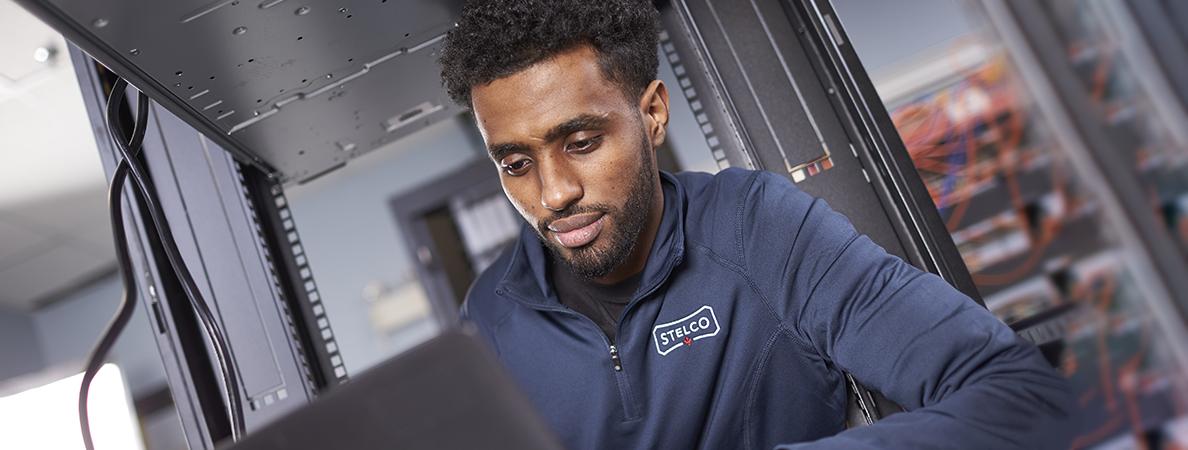
Yafet, a current Computer Systems Technology - Network Engineering and Security Analyst student, recently got a sample of the real world. As a Mohawk College student of a program that features a co-op work term, Yafet had the opportunity to apply all of the knowledge and practical skills he gained in his classes at steelmaker giant Stelco. But the experience was about much more than putting his know-how on display. It was also a way for Yafet to truly explore a vast field — and to discover the impact he can have on it.
“Since knowing that networking opens doors to different opportunities, I want to make sure I explore every option I have, and that I learn new things about my field,” he says. “I want to be able to have something to contribute to the world in my field of studies.”
It was this determination, combined with Yafet’s interest in the advancement of technology, that led him to the area of network engineering and security analyst. With one-fifth (21 per cent) of all Canadian businesses reporting cyber security incidents in 2019, it’s a burgeoning field. In fact, in 2019, 60 per cent of Canadian businesses had at least one employee who completed tasks related to cyber security as part of their regular responsibilities.
To ensure students are prepared to contribute to various areas of the computer systems technology field, Mohawk’s program covers topics that range from fundamentals to advanced subjects. Among them are: network connectivity, virtual infrastructure, network and data security, server operating systems, security auditing and computer forensics, and cloud computing technologies. All of the program’s classes, says Yafet, serve an important purpose.
“I found networks to be the base for every technology to operate,” he says, before advising aspiring network engineering and security analysts. “So, pay attention to the basics. Even if you get a job at a big company, you still need the fundamental basic things you learned in the first semester.”
While classes are diverse in subject matter, they do share commonalities. Students test and execute course concepts using software and equipment in computer labs; apply cumulative program knowledge through a capstone research project; and participate in applied research projects. They also contribute to the workforce through co-op. In today’s digital world, with virtually all organizations relying on computer systems technology, the sectors students can enter are diverse.
Stelco, for example, is an independent steelmaker, which got its start in 1910. Today, it boasts one of the newest and most technologically advanced integrated steelmaking facilities in North America. It produces products that are used in the construction, automotive, energy, appliance, and pipe and tube industries. This is where Yafet recently completed his co-op work term. By contributing to Stelco’s networking engineering and cybersecurity teams, Yafet’s exploration ultimately led him to a solid career conclusion as well as a commitment to lifelong advancement.
“When I finished the co-op program, it helped me greatly in deciding my path,” he says. “What I enjoy most about my field is learning new things. And, in our field, I found there is always something new to learn.”




